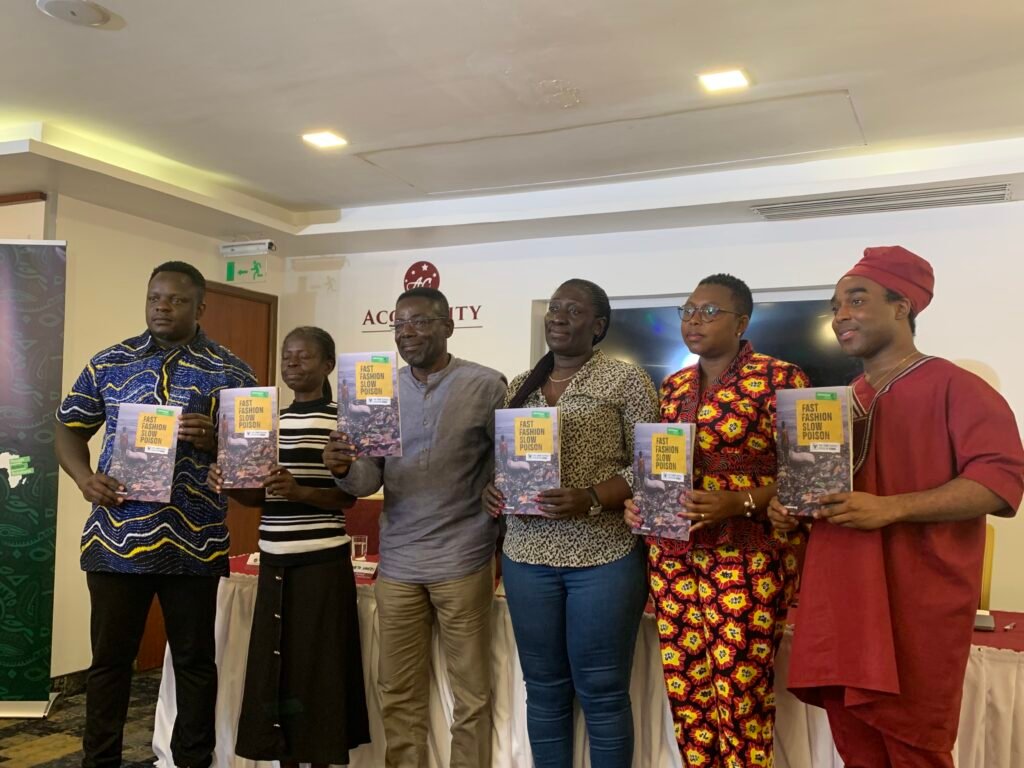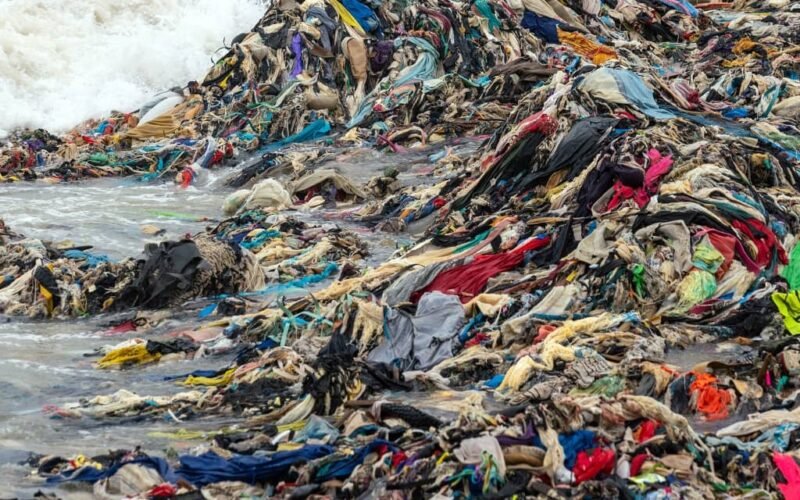A recent report by Greenpeace Africa and Greenpeace Germany, “Fast Fashion Slow Poison: The Toxic Textile Crisis in Ghana” offers a detailed examination of the economic and social repercussions of fast fashion waste on Ghana. The report reveals that the immense volume of discarded clothing from the Global North is imposing a significant burden on Ghanaian communities and the local economy.

Each week, Ghana receives an influx of 15 million unsellable clothing items, which overwhelms existing waste management systems and creates substantial economic strain. The costs associated with managing and cleaning up this waste are substantial and place an additional financial burden on already stretched municipal resources.
The environmental degradation resulting from this waste is also impacting key local industries. The pollution from synthetic fibers and other contaminants is damaging agricultural lands and freshwater sources, affecting crop yields and fisheries. For many Ghanaians who rely on agriculture and fishing for their livelihoods, this environmental damage translates into economic hardship and food insecurity.

The environmental damage is clear.Nearly 90% of these garments contain synthetic fibers, contributing to the rising problem of microplastic pollution in the country’s water and soil. In coastal areas, fishermen have reported an alarming new phenomenon-nets filled with discarded clothing rather than fish.
“Fishermen are catching clothes instead of fish,” said Mr. Michael Annan, a member of Greenpeace’s research team. “The waste from these bales ends up on our shores, and it’s destroying the livelihoods of both traders and fishermen. We want to urge the middlemen and those in the Global North dealing with these bales to ensure that they do not include fast fashion waste. This waste should be left for the countries producing it to deal with.”

Greenpeace Africa, alongside traders like Elizabeth Nartey and environmental advocates like Michael Anan, is calling for urgent action from both local authorities and fast fashion producers in the Global North. There is a growing demand for greater accountability in how fast fashion waste is managed.

The report concludes by urging governments in the Global North to regulate the export of second-hand clothing to prevent unwearable, low-quality garments from being dumped in countries like Ghana. It also calls for fast fashion companies to take responsibility for the end-life of their products, ensuring that waste is dealt with sustainably in the countries where it is produced.
“Ghana cannot continue to be used as a dumping ground for the world’s fast fashion waste” says Ferdinand Omondi, Greenpeace Africa’s Communication and Story Manager. This is not just an environmental issue, it’s a human rights issue. Communities are suffering, and action needs to be taken immediately.”

Additionally, the formation of ‘plastic beaches’ along Ghana’s coast disrupts the tourism industry, which is an important source of income for the country. The sight of polluted shores and the decline in marine life can deter tourists, further exacerbating economic difficulties in coastal communities.
The report highlights the need for international cooperation and policy changes to address these economic and social impacts. It calls for reforms in the fast fashion industry and better waste management solutions to mitigate the adverse effects on Ghana’s economy and its people.
For further details or to set up an interview, please reach out to Ferdinand Omondi at fomondi@greenpeace.org or +254 722 505 233 (cell/Whatsapp).









